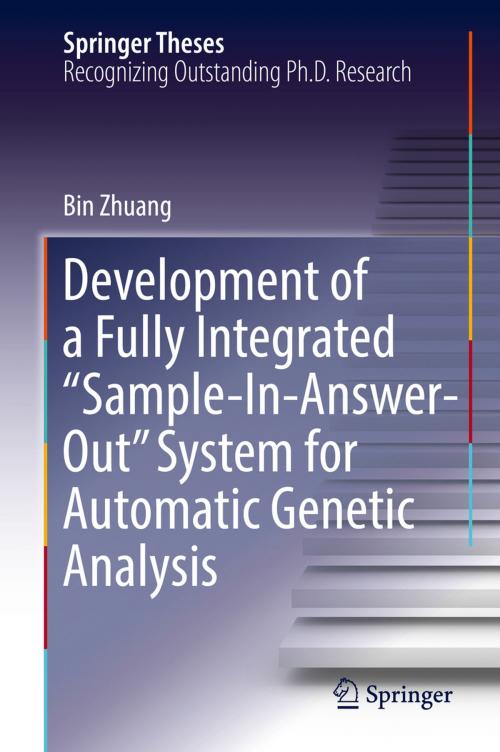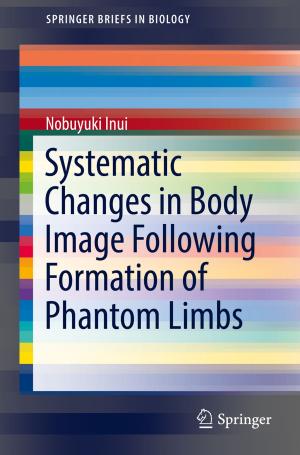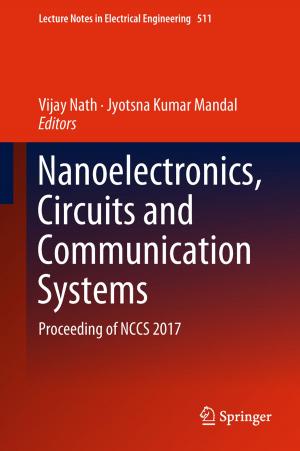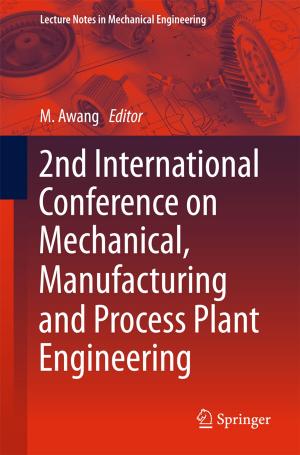Development of a Fully Integrated “Sample-In-Answer-Out” System for Automatic Genetic Analysis
Nonfiction, Science & Nature, Science, Biological Sciences, Genetics, Technology, Engineering, Health & Well Being, Medical| Author: | Bin Zhuang | ISBN: | 9789811047534 |
| Publisher: | Springer Singapore | Publication: | July 20, 2017 |
| Imprint: | Springer | Language: | English |
| Author: | Bin Zhuang |
| ISBN: | 9789811047534 |
| Publisher: | Springer Singapore |
| Publication: | July 20, 2017 |
| Imprint: | Springer |
| Language: | English |
This thesis reports on the development of a fully integrated and automated microsystem consisting of low-cost, disposable plastic chips for DNA extraction and PCR amplification, combined with a reusable glass capillary array electrophoresis chip, which can be employed in a modular-based format for genetic analysis. In the thesis, DNA extraction is performed by adopting a filter paper-based method, followed by an “in-situ” PCR carried out directly in the same reaction chamber of the chip without elution. PCR products are then co-injected with sizing standards into separation channels for detection using a novel injection electrode. The entire process is automatically carried out by a custom-made compact control and detection instrument. The author thoroughly tests the system’s performance and reliability by conducting rapid genetic screening of mutations on congenital hearing loss and pharmacogenetic typing of multiple warfarin-related single-nucleotide polymorphisms. The successful development and operation of this microsystem establishes the feasibility of rapid “sample-in-answer-out” testing in routine clinical practice.
This thesis reports on the development of a fully integrated and automated microsystem consisting of low-cost, disposable plastic chips for DNA extraction and PCR amplification, combined with a reusable glass capillary array electrophoresis chip, which can be employed in a modular-based format for genetic analysis. In the thesis, DNA extraction is performed by adopting a filter paper-based method, followed by an “in-situ” PCR carried out directly in the same reaction chamber of the chip without elution. PCR products are then co-injected with sizing standards into separation channels for detection using a novel injection electrode. The entire process is automatically carried out by a custom-made compact control and detection instrument. The author thoroughly tests the system’s performance and reliability by conducting rapid genetic screening of mutations on congenital hearing loss and pharmacogenetic typing of multiple warfarin-related single-nucleotide polymorphisms. The successful development and operation of this microsystem establishes the feasibility of rapid “sample-in-answer-out” testing in routine clinical practice.















